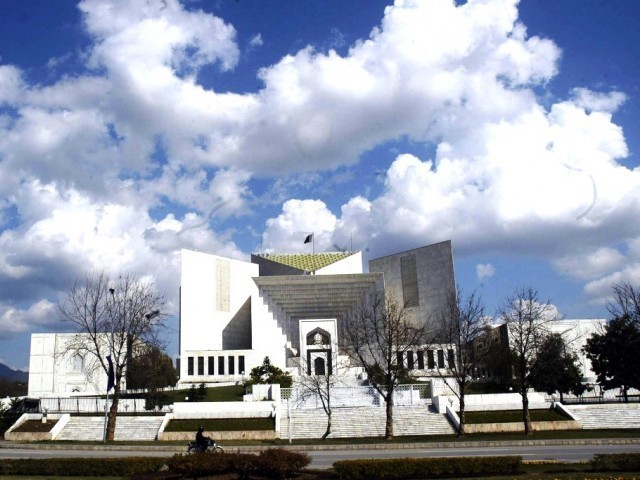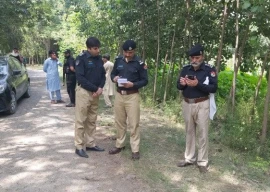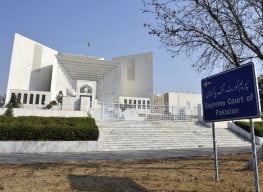
The Supreme Court has been approached by several serving and retired government servants against the Islamabad High Court’s (IHC) restraining orders regarding allotment of plots to judges, bureaucrats and government employees in the capital’s F-14 and 15 sectors through balloting.
Through their counsel Hafiz Ahsaan Ahmad Khokhar, several serving and retired federal government servants have filed two petitions against the IHC’s August 20 and September 13 orders, requesting the apex court to restrain the IHC from passing orders of similar nature against the petitioners.
It is contended that the petitioners being serving and retired government servants are the allottees of plots/land in subject sectors F14-F15 Islamabad and deposited the requisite amount since long with Federal Government Employees Housing Authority (FGEHA) in lieu of their allotted plots.
Read more: Justice Sheikh elevated to Supreme Court sans consent
It is also submitted that question as to whether the land could have been acquired for the FGEHA was not the subject matter of the writ petition whereas the impugned order dated Sept 13, 2021 observed otherwise and travelled beyond their prayers even which was not the issue raised or agitated before the IHC.
"The petitioners are seriously prejudiced by the impugned order dated Sept 13 passed by the learned division bench of the IHC being violative in law."
The petition stated that fact of case is that prior to 2009, FGEHA offered housing to employees for specified scheme on the basis of their age and seniority in government service (Scheme Specific Drives) respondent no 1 (FGEHA), at the time of launching a new scheme, would advertise a membership drive for the particular scheme, and employees were allotted housing within that scheme and seniority of members subscribing to the Scheme Specific Drives was determined on the basis of date of birth of the members or their seniority within the relevant government cadre (age wise seniority).
Also read: Supreme Court ‘tough’ on govt workers
The petition stated that the IHC while exercising the jurisdiction under Article 199 of the Constitution travels beyond the grievance of an aggrieved party or a person, it amounts to exercise of suo motu jurisdiction which a high court does not have, therefore the order needs to be set aside being not legal and sustainable in law.
The petition further stated that while exercising the jurisdiction in the instant matter, the high court with due respect has passed the order which amounts to judicial overreach, thus requires intervention by the apex court.
"Constitutional jurisdiction under Article 199 of the Constitution cannot be exercised in vacuum when particularly all contentious issues regarding acquisition and public interest/public purpose adequately resolved earlier with admirable clarity by the larger bench of this court reported judgment 2021.
"The high court failed to comprehend while exercising the jurisdiction that there must exist a dispute before exercising judicial power by an aggrieved person within the meaning of Article 199 of the Constitution and further this is an essential pre requisite to invoke the jurisdiction under Article 199 of the Constitution, thus impugned order is not sustainable."
The petition stated that the IHC cannot reassert or reassess the proceedings on such point which already decided by this court and these principles have further been elaborated through various judgments by this court.
"The high court failed to understand and comprehend the concept and application of aggrieved or aggrieved person given under Article 199 of the Constitution."
The petition said that the high court went beyond the jurisdiction given under the Constitution and acted against the principles of oversight jurisdiction enshrined under Article 199 of the Constitution and pronounced by this court.

1732071267-0/lana-(2)1732071267-0-165x106.webp)
1727242355-0/Diddy-(1)1727242355-0-165x106.webp)

1732063440-0/elon-(3)1732063440-0-165x106.webp)


1732080054-1/Copy-of-Untitled-(48)1732080054-1-270x192.webp)











COMMENTS (2)
Comments are moderated and generally will be posted if they are on-topic and not abusive.
For more information, please see our Comments FAQ